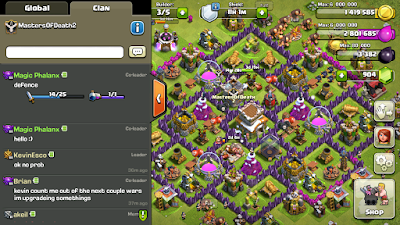 |
This is the friends list in game that shows you who is on and where they are in the world.
|
 |
This is a picture of my base and my clan chat open where you can talk to your whole clan.
|
 |
This is the shadow behemoth world boss where tons of people gathered for the same cause, to kill it for loot
|
McGonigal, Jane. Reality Is Broken: Why Games Make Us Better and How They Can Change the World. New York: Penguin Group, 2011. Print.
Hey Ryan! I really like your blog posts, because they are very descriptive and even as someone who's not really a gamer, I can understand what you're talking about. My lil brother himself is ADDICTED to video games, which I don't always approve of, however I have noticed that gaming really does bring him and his friends together. Even if they fight sometimes on the playground, whenever they're over at someone's house playing video games they always do great and work very well together.
ReplyDelete